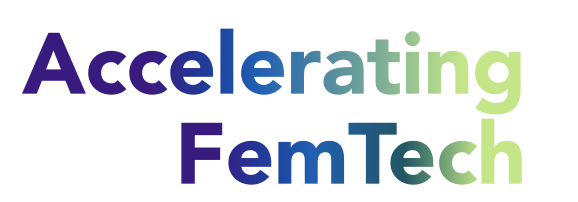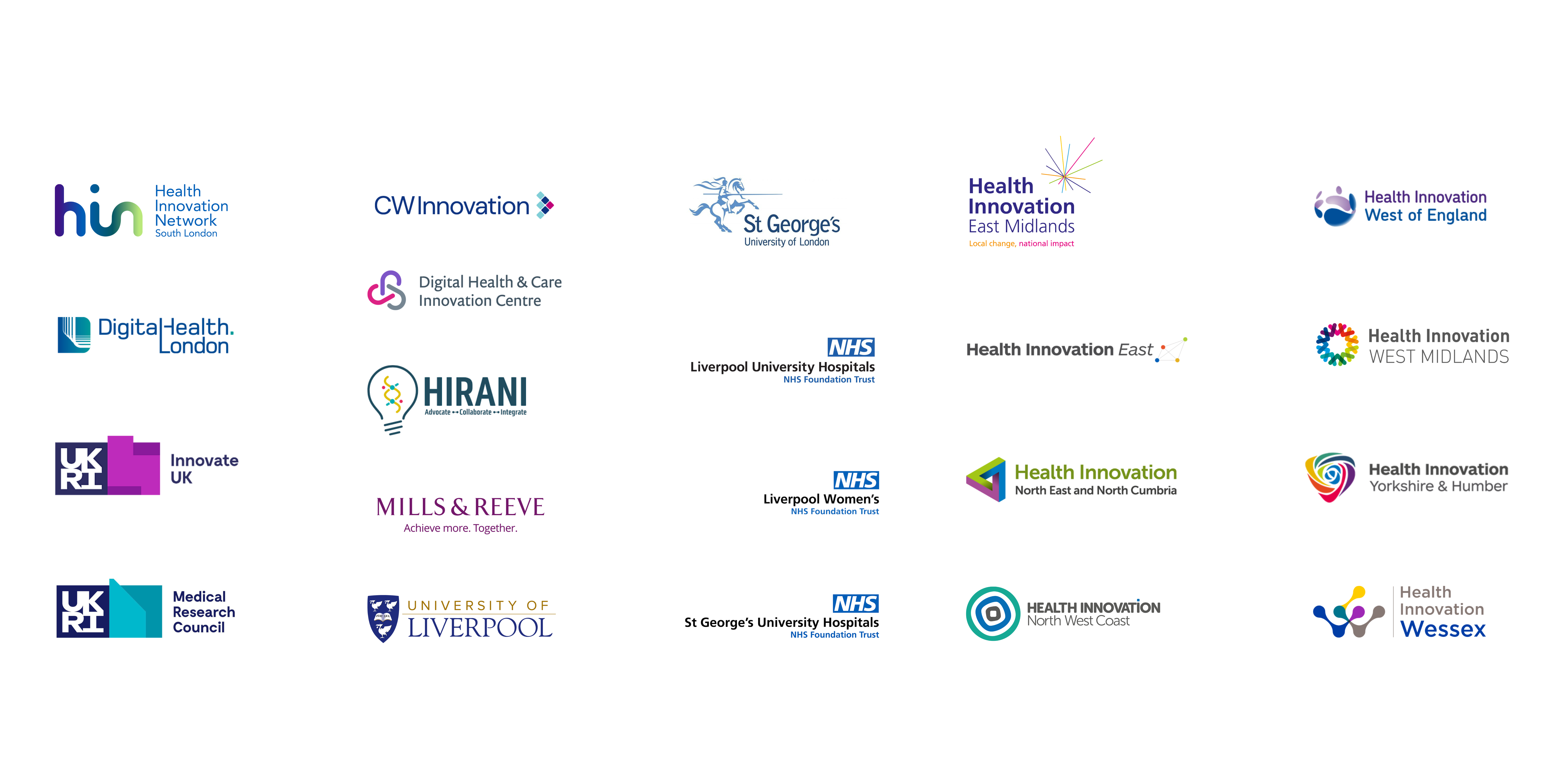Apply to be part of Accelerating FemTech
Applications for the programme are open until midnight on Sunday 13 October 2024.
Apply nowAccelerating FemTech supports early-stage companies, university spinouts and academic entrepreneurs from across the UK, who are looking to take their early-stage innovation to the next level. These innovations will address current challenges in women’s health, including maternity and neonatal safety.
As applications open for this year’s programme, advisory board member Professor Asma Khalil, Professor of Obstetrics and Maternal Fetal Medicine at St George’s Hospital and the Vice President of the Royal College of Obstetricians and Gynaecologists (RCOG), highlights the importance of innovations for addressing real-world challenges she has witnessed in maternity care. Professor Khalil also discusses how innovator support programmes helped her develop her own FemTech innovation, HAMPTON, and what more can be done to support innovators in this field.
In March 2015, Simon Stevens, Chief Executive of NHS England, announced a major review into maternity services. The resulting National Maternity Review (Better Births) report, which was published in February 2016, drew on the experiences of women and their families. The report set out seven key proposals to tackle a range of issues, from enhancing the safety of care to providing impartial information to empower women to receive personalised care.
Disappointingly, the latest Maternity Survey from CQC and the NHS Patient Survey Programme, which involved 121 NHS trusts in England, reveals that many people’s experiences of maternity care have in fact deteriorated in recent years. Out of the 26 questions asked, 11 show statistically significant downward trends between 2018 and 2023, whilst only 1 question had an overall positive response. For example, the survey states that 60% of women asked said they ‘always’ received the information and explanations they needed, compared to 65% in 2018. These responses come as no surprise to me. As Professor of Obstetrics and Maternal Fetal Medicine at St George’s hospital, I have witnessed clear concern amongst patients regarding maternal safety, and since the experiences of Covid-19, staff can be demoralised, with reduced resilience to stress and difficult working environments.
It is clear that there are some complex challenges at play in maternity care; but what is the way forward? In the Better Births report, the importance of innovation was highlighted as a key vision for maternity care. In order to deliver “women centred” care, all staff must be supported in “organisations that are well led and in cultures which promote innovation, continuous learning, and break down organisation and professional boundaries.”
I have seen from my own experience as a clinician and inventor that technological innovations have the potential to improve efficiency, conserve resources and enhance staff wellbeing and patient experience. However, it is paramount that innovators are supported from the earliest stages. By making strong connections with key stakeholders from the very beginning, innovators can grow their innovations for where they’re needed most, in quicker and more effective ways.
Programmes like Accelerating FemTech can be the difference between just the seed of an idea and a fully developed innovation that can begin to address urgent women’s health challenges. During the development of HAMPTON, a digital innovation which enables pregnant women to monitor their blood pressure safely at home, I enrolled on two innovation support programmes. By participating in the National Innovation Accelerator and DigitalHealth.London’s Accelerator, I was able to develop new entrepreneurial and commercial skills that ultimately shaped the development and implementation of HAMPTON.
As the only practising doctor in my cohort of the National Innovation Accelerator, I came into the programme with a different range of skills and experiences to my peers. Networking, peer learning and pitching practice gave me the opportunity to form bonds with founders who had commercial experience and to learn about new avenues where I could refine and market my innovation. In return, I was able to share my knowledge on the importance of patient involvement and co-development, as well as navigating the NHS with peers from a commercial background.
Mentoring throughout the programmes also allowed me to identify the strengths and weaknesses of both my approach and the innovation itself, as well as reaching new networks and opportunities in the UK and beyond. By facilitating a space for collaboration across different fields, the innovation support programmes enabled me to blend together academic, clinical and commercial skills, which are key to long-term success.
Beyond programmes of support specifically for FemTech, such as Accelerating FemTech, it is important that stakeholders actively champion the uptake of innovation in women’s health. The RCOG have a major role in this, issuing national policies and guidelines for the practice, as well as facilitating training and education to improve women’s health.
A clear next step to support innovators would be the introduction of an innovation hub in the RCOG, focused on women’s health. This would build on the fantastic work already being done by innovation support programmes, such as Accelerating FemTech, by providing a space for small and medium enterprises (SMEs), industry, academia and clinicians to come together and etch out the future of women’s health, with innovation at the forefront. It is vital that start-ups and innovators with emerging ideas are given the space and support to collaborate, whether that be by asking research and clinical questions to experts or by building their networks to access key stakeholders. By realising an ecosystem that champions innovation as a tool for improvement, FemTech founders can access the support, knowledge, skills and experience they need to make real change in women’s health and care.

Applications for the programme are open until midnight on Sunday 13 October 2024.
Apply nowThis is your chance to learn more about the Accelerating FemTech programme, engage with members of the programme delivery team and some of the companies who have been previously supported on Tuesday 1 October from 12:30PM to 1:30PM.
Sign up to the webinar